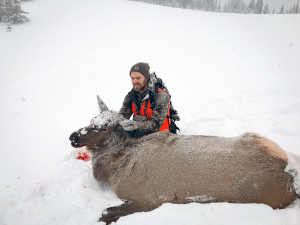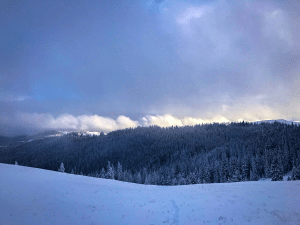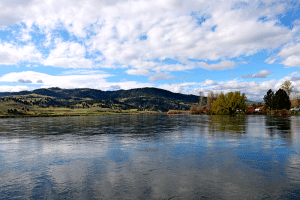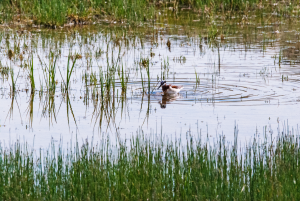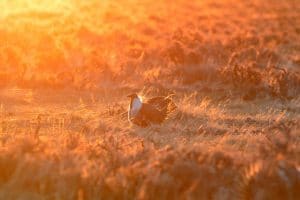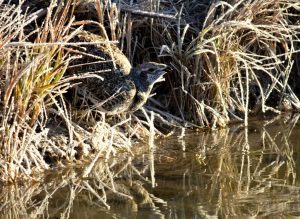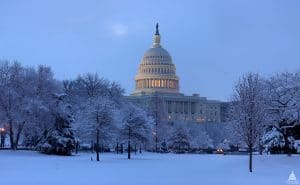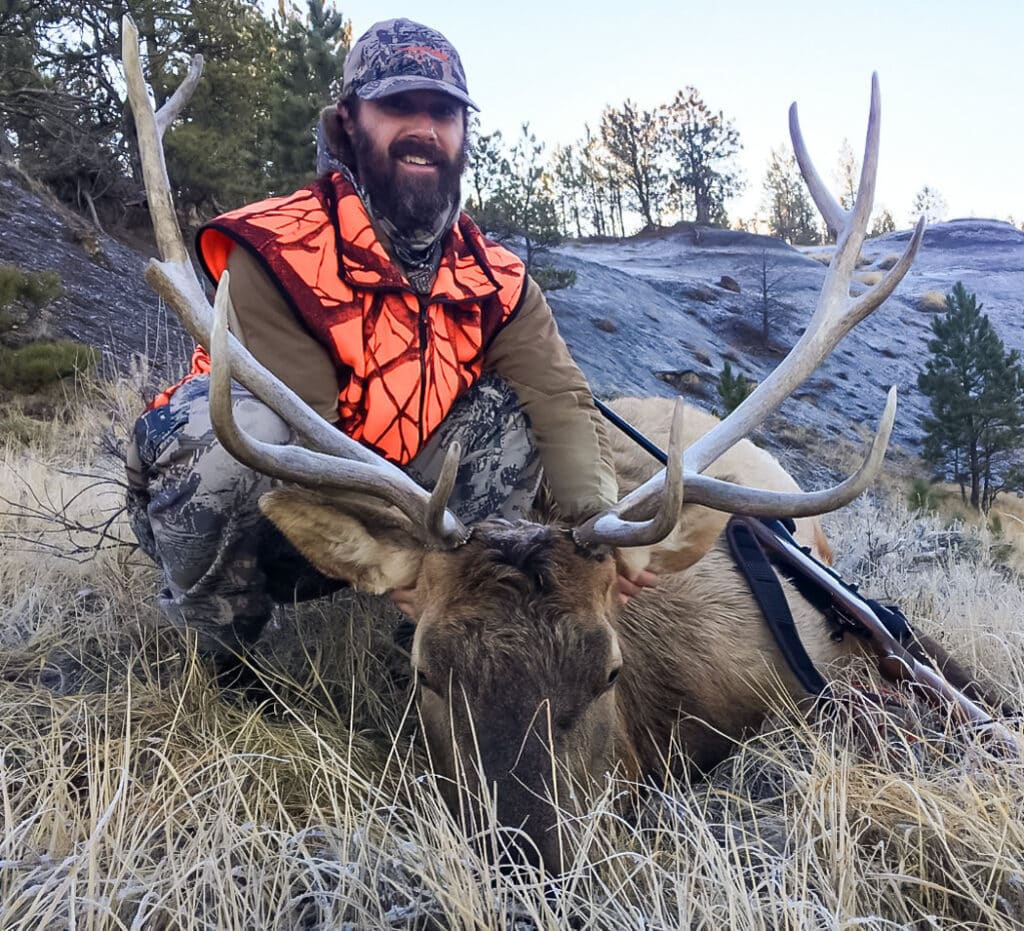Just west of MacDonald Pass lies the Spotted Dog Wildlife Management Area (WMA). Consisting of nearly 38,000 acres of prime wildlife habitat, this land was placed in the public trust ensuring quality wildlife habitat and increasing hunter opportunity in an area where access is shrinking. MWF strongly supported acquiring the Spotted Dog WMA and believed that this acquisition would permanently conserve and provide recreational opportunity for thousands of Montanas. This fall, I chose to see this country for the first time while hunting for elk.
We struck out in the dark. It was snowing and the moon reflected off each flake, making our headlights unnecessary. We trudged along, cutting a trail through the freshly fallen snow. After two miles we reached our destination, a saddle where a swath of open meadows meandered between thick stands of pines. As we stood in the stillness, snow falling, our breath suspended in the air, an elk stepped into the meadow.
First one elk, then another stepped into the clearing. With no cover available, we dropped into the snow to blend in as much as possible. Moving quickly I dropped my pack and propped my rifle on the frame. But the elk had become conscious of our presence and, giving no shot, turned and made their way up the hill. My heart sank. Out of nowhere, two more elk wander into the meadow. I settled back in, took in a breath, let it out, and squeezed.
